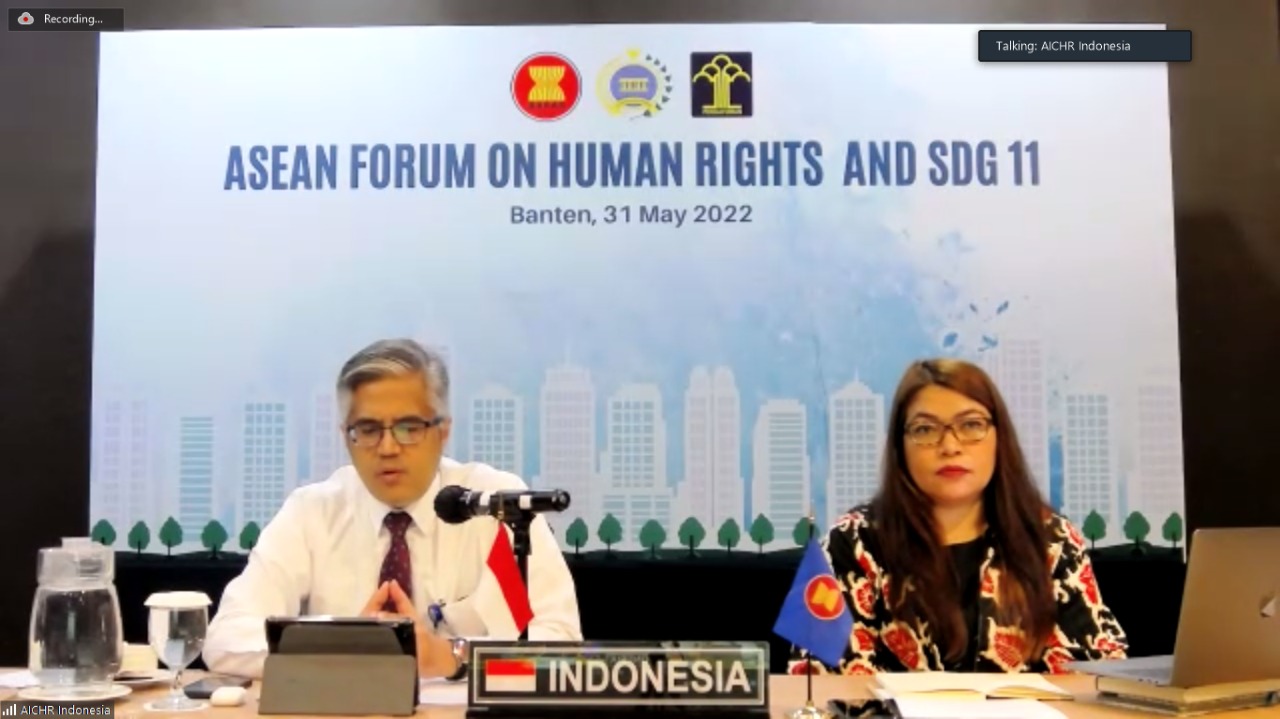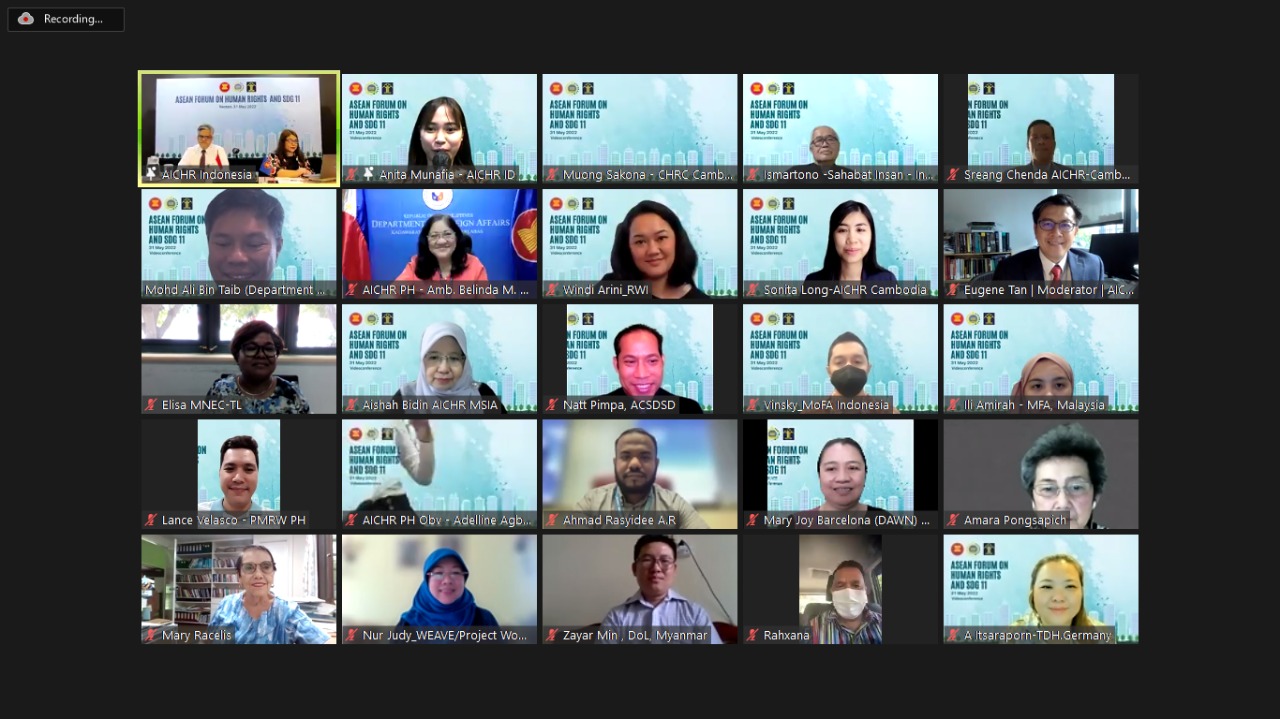
AICHR hosts the ASEAN Forum on Human Rights and SDG 11

JAKARTA, 7 June 2022 – The ASEAN Intergovernmental Commission on Human Rights (AICHR) organised the ASEAN Forum on Human Rights and SDG 11: Making Cities and Human Settlements Inclusive, Safe, Resilient and Sustainable in the post-pandemic time, on 31 May in a hybrid format.
The forum aimed to provide a regional platform for local authorities in ASEAN Member States, AICHR, and stakeholders to exchange views on challenges and good practices in shaping resilient, inclusive, sustainable, and human rights societies while responding to COVID-19. It also enabled them to learn from each other’s practices on the use of the SDG 11 framework in guiding cities to recover from the pandemic.
H.E. Long Sonita, Alternate Representative of Cambodia and Chair of AICHR, emphasised the need to identify actions, mechanisms, and practical steps in implementing SDG 11 to realise cities and human settlements that are inclusive, safe, resilient, sustainable, and more people-centered and right-based in the post-pandemic era.
While H.E. Wahyuningrum, Representative of Indonesia to AICHR, said that the post-pandemic situation should be seen as a momentum to build the region better and stronger, where its cities can re-organise its norms, practices, and projects based on human rights values, solidarity, inclusion, social justice, equity, democracy, and sustainability.
On this line, Rolliansyah Soemirat, Director for the ASEAN Political-Security Cooperation, Ministry of Foreign Affairs of Indonesia, underscored the role that local governments play in advancing comprehensive human rights, attaining SDG 11 and their relations to resiliency and recovery effort in dealing with the aftermath of the pandemic in ASEAN.
He also exemplified Indonesia’s human rights cities such Bandung as the first-declared Human Rights Friendly City in Indonesia in April 2015 during the celebration of the 60th Anniversary of the Asia-Africa Conference, and Wonosobo as one of Indonesia’s human rights cities which participated in Gwangju’s World Human Rights Cities Forum co-hosted by the OHCHR and UNESCO.
Furthermore, UN Human Settlement Programme (UN-Habitat) Executive Director Maimunah Mhd Sharief said in her remarks that only by adopting just, fair, and equitable legislation, and ensuring effective enforcement and remediation, will we bear witness to the transformation to respond to the reality of COVID-19, future pandemics, and climate crisis.

More than 80 participants representing the ASEAN sectoral bodies, relevant ministries of the ASEAN Member States, national human rights institutions, UN bodies, academes, youth, and civil society organisations participated in the forum.
They discussed SDG 11 as a framework for long-term COVID-19 recovery strategies, the role of local governments in building post-pandemic world, urban governance and innovations and the role of stakeholders to shape the human rights-friendly ‘Cities of Tomorrow’ in ASEAN.
Participants emphasised the need to improve public participation and inclusion; establishing a crisis early warning system; building the capacity of local authorities on human rights-based approached to SDG 11; working in collaboration with the existing initiatives at the national levels such as the right to the city project, human rights city, woman and child-friendly city as well as with ASEAN Smart Cities Network at the regional level; strengthening digital platform and data governance, and conducting more learning platforms for local governments in ASEAN.
This forum is the implementation of the AICHR Five-Year Work Plan 2021-2025 and the ASEAN Comprehensive Recovery Framework.
AICHR acknowledged the support from the Ministry of Foreign Affairs of Indonesia and the Ministry of Law and Human Rights of Indonesia towards the realisation of the Consultation.
